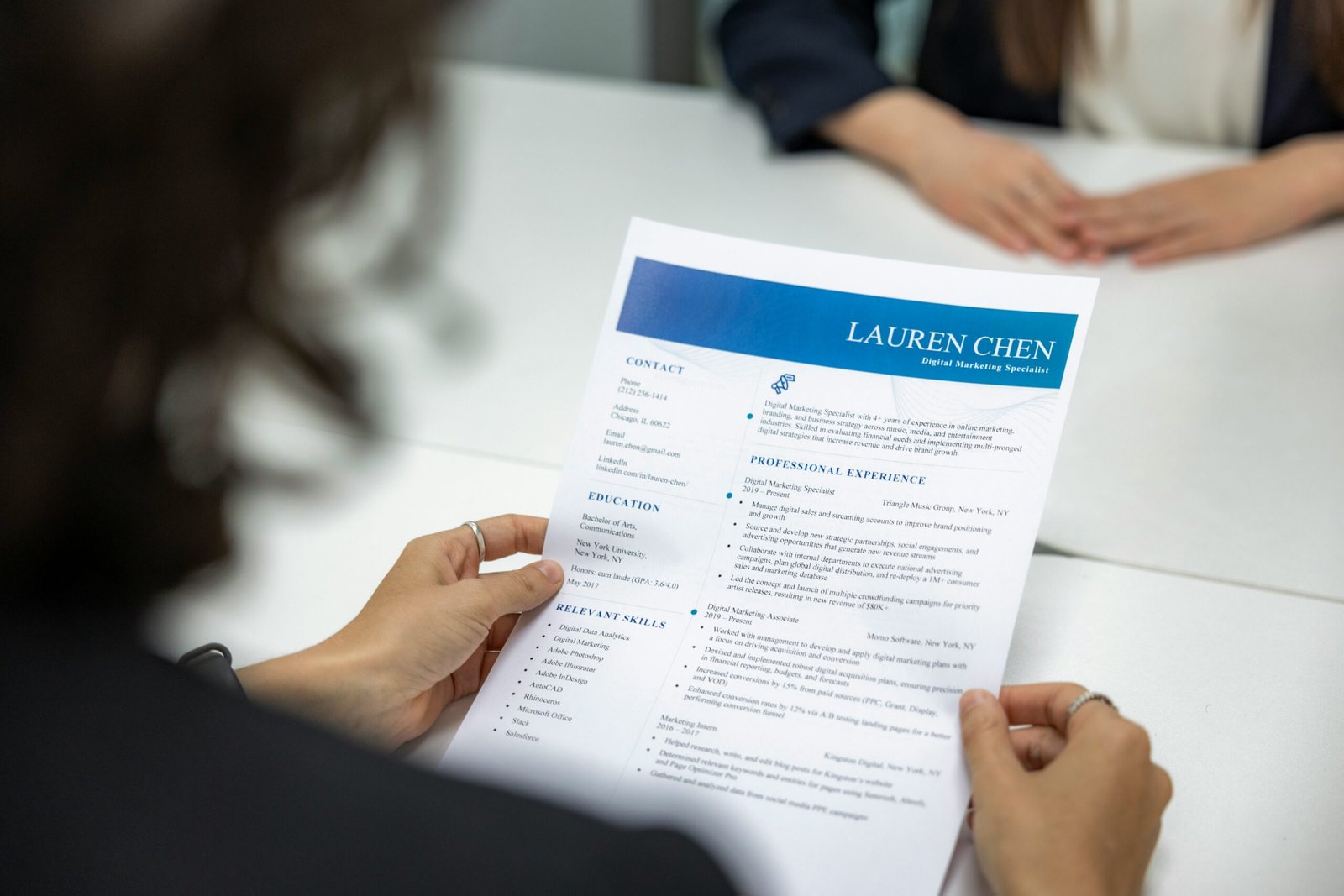Understanding the Importance of Interview Preparation
Interview preparation is a fundamental step in the job acquisition process, particularly within the competitive landscape of the corporate world. The initial interaction with potential employers often shapes first impressions, which can leave a lasting impact on the overall interview experience. It is widely acknowledged that hiring managers form judgments in the first few minutes of an interview, making preparation crucial for candidates aiming to stand out. Without due diligence in preparing for interviews, individuals may undermine their own chances of securing a position.
Moreover, confidence is a critical factor that influences the outcome of interviews. When candidates invest time in understanding the company’s culture and the specific role they are pursuing, they cultivate a sense of assurance that resonates during the interview. This confidence not only enhances their communication but also reflects positively on their ability to contribute effectively to the organization. The psychological aspect of interview preparation cannot be underestimated, as it directly correlates with one’s performance. Candidates who are well-prepared tend to experience reduced anxiety levels, enabling them to present their qualifications calmly and articulately.
Thorough preparation entails researching common corporate interview questions, identifying personal achievements that align with the job requirements, and practicing responses. Furthermore, candidates should consider conducting mock interviews, which allow them to simulate real scenarios, refine their speaking skills, and adapt to varying interview styles. This kind of extensive preparation not only bolsters the confidence of job seekers but also maximizes their likelihood of making a positive impression. In turn, such a proactive approach to interviews significantly enhances the chances of securing a favorable outcome in the job selection process, paving the way for a successful career in their chosen field.
Researching the Company and Role
Preparation for interviews within the corporate sector necessitates a comprehensive understanding of the potential employer. This begins with researching the company’s culture, values, and recent developments to align one’s personal and professional ethos with that of the organization. Corporate values often serve as guiding principles that dictate daily operations and employee behavior; therefore, an informed candidate can better articulate their potential contributions during the interview process.
One of the most effective methods to gather this information is by reviewing the company’s official website, particularly sections that detail its mission and vision. Moreover, avid candidates should explore recent press releases, blog posts, or annual reports that highlight the company’s achievements and future goals. Platforms like LinkedIn or business news websites can also provide valuable insights into the company’s standing within the industry and any notable changes or challenges it may be facing.
Equally important is a thorough analysis of the job description. Understanding the required skills and qualifications outlined in the job posting is crucial for effective interview preparation. Candidates should identify key competencies and experiences the organization values, which will enable them to tailor their responses and examples to showcase their qualifications effectively.
Additionally, crafting tailored questions for the interviewers can demonstrate a proactive attitude and genuine interest in the organization. Thoughtful inquiries about company culture, team dynamics, or future projects can forge a meaningful dialogue during the interview. Online forums, such as Glassdoor, provide insights from former interviewees, often sharing experiences and expectations from the interview process, which can aid candidates in their preparation.
This diligent research process ultimately equips candidates with the necessary knowledge to navigate interviews confidently and position themselves as well-informed contenders in their career journey.
Developing Key Skills for Corporate Success
To excel in the corporate environment, candidates must cultivate a diverse set of skills that encompass both hard and soft dimensions. Success in job interviews often reflects the applicant’s proficiency in these skills, which are crucial for navigating the complexities of modern workplaces.
Effective communication stands at the forefront of essential skills. This involves not only articulating thoughts clearly during interviews but also developing the ability to listen actively. Candidates who can convey ideas succinctly and engage in meaningful dialogues are more likely to stand out in interviews. Additionally, teamwork is a fundamental aspect of corporate success; the ability to collaborate with various team members enhances productivity and fosters innovation. Demonstrating experiences in group projects or collaborative tasks during interviews can significantly boost a candidate’s profile.
Problem-solving capabilities are another vital skill in the corporate setting. Employers seek individuals who can identify challenges and devise actionable solutions. Aspiring candidates can enhance their problem-solving skills through role-playing scenarios or participating in case study workshops, which often simulate real-world corporate challenges. Lastly, adaptability has become increasingly important in today’s ever-evolving job market. Candidates should focus on embracing change, whether through acquiring new technologies or adapting to shifting market demands.
In addition to these soft skills, acquiring specific technical skills related to one’s industry can greatly enhance a candidate’s employment prospects. Online learning platforms offer various courses tailored to different sectors. Workshops and seminars conducted by industry professionals also provide invaluable insights and networking opportunities that are beneficial for career advancement.
By actively developing these key skills, candidates will not only prepare for successful interviews but also lay a strong foundation for enduring career success in the corporate world.
Crafting Your Personal Brand
In today’s competitive job market, cultivating a strong personal brand is essential for standing out during the interview process. Personal branding refers to the way individuals promote themselves and their careers, effectively conveying their unique strengths, skills, and values to potential employers. To successfully craft your personal brand, begin by identifying your core competencies and experiences that set you apart from other candidates. Reflect on your career journey, pinpointing your achievements, challenges overcome, and personal qualities that resonate with your professional identity.
Once you have a clear understanding of your strengths, it is crucial to communicate them effectively during interviews. A well-articulated narrative about your career can leave a lasting impression on hiring managers. Practice discussing your strengths in a succinct yet compelling manner, tailoring your message to align with the needs of the corporate role you are pursuing. By framing your experiences in a way that highlights how they relate to potential contributions within the organization, you create a strong case for your candidacy.
Moreover, leveraging social media and networking platforms is a powerful strategy for enhancing your personal brand. Platforms like LinkedIn provide a space to showcase your professional accomplishments, skills, and endorsements from colleagues. Regularly updating your profile with articles, certifications, and other indicators of growth can attract the attention of recruiters and hiring managers. Networking plays an equally vital role; attending industry events and engaging with professionals in your field allows you to build meaningful connections that can aid in job searches and interviews.
Investing time in defining and promoting your personal brand can significantly increase your chances of success in corporate job interviews. A well-crafted personal brand not only reflects your professional identity but also communicates your value to potential employers, setting you on a path to achieving your career goals.
Practicing Common Interview Questions
Interviews are a critical component of the job application process, serving as gateways to career advancement in the corporate world. Understanding the most common interview questions and their significance is essential for candidates aspiring to make a positive impression on potential employers. Typically, these questions aim to assess a candidate’s qualifications, work ethic, problem-solving abilities, and cultural fit within an organization.
One prevalent type of interview question revolves around behavioral inquiries, which delve into past experiences to predict future behavior. These questions often begin with phrases like “Tell me about a time when…” or “Describe a situation where…”. To address such queries effectively, candidates can utilize the STAR method, which breaks down their response into four clear components: Situation, Task, Action, and Result. This structured approach not only helps in organizing thoughts but also enhances communication clarity, allowing the candidate to present their experiences confidently and comprehensively.
In addition to mastering common interview questions, it is equally important for candidates to engage in mock interviews. Practicing with peers or mentors can simulate the interview environment, providing invaluable feedback to enhance performance. During these sessions, individuals should focus on articulating their past experiences relevant to the questions posed, ensuring they highlight achievements and lessons learned. Furthermore, candidates should prepare to discuss their career journey, emphasizing skill sets that align with the prospective corporate role. Emphasizing adaptability and growth will resonate positively with interviewers.
Ultimately, effective preparation for interviews goes beyond simply rehearsing answers; it requires a strategic approach that combines understanding typical questions, employing techniques like the STAR method for clarity, and practicing mock interviews for experience. This comprehensive preparation can significantly elevate a candidate’s confidence, making them well-equipped for success in their job search.
Dressing for Success: Professional Attire Tips
In today’s competitive job market, making a strong first impression during interviews is crucial, and professional attire significantly influences the perception of candidates. Employers often form their opinions based on appearance before formal discussions even begin, making it essential to choose attire that conveys a blend of professionalism and suitability for the corporate environment.
Understanding the company’s culture is vital when selecting appropriate interview clothing. For instance, a technology firm may foster a more relaxed dress code, allowing candidates to opt for business casual attire. In contrast, traditional organizations such as law firms or financial institutions typically expect formal business wear. Researching the company’s image through its website or social media profiles can give candidates valuable insights into their appropriate dress code.
For men, a classic choice for interviews often includes a well-fitted suit in a neutral color like navy, charcoal, or black, complemented by a solid-colored shirt and a coordinating tie. Proper grooming is equally important; ensuring that hair is neatly styled and facial hair is well-trimmed creates a polished look. Footwear should be clean and formal, usually dress shoes that complement the outfit.
Women have multiple options when it comes to professional attire for interviews. A tailored dress or a business suit is generally acceptable, with colors that promote confidence and professionalism. Blouses should adhere to conservative standards in terms of cut and design. Accessories should be kept simple and elegant, avoiding overly flashy or distracting pieces. Additionally, attention to personal grooming is necessary, as a neat hairstyle and minimal makeup can enhance one’s overall professional presentation.
Ultimately, dressing for success in interviews involves understanding the corporate culture, choosing appropriate attire, and ensuring a well-groomed appearance. This conscious effort to present oneself professionally not only reflects a candidate’s seriousness about the position but also sets the right tone for a successful job interview.
Navigating the Online Interview Landscape
The shift towards online interviews has transformed the corporate hiring process, making it essential for candidates to adapt their preparation strategies. To begin with, establishing a professional interview environment is crucial. Choose a quiet space with good lighting, free from distractions. A neutral background enhances your professionalism and keeps the focus on you. Ensure your attire mirrors what you would wear to an in-person interview, which helps convey your serious intentions about the job and the respect you hold for the interviewer’s time.
Technical preparedness cannot be overlooked in online interviews. Familiarize yourself with the technology and platform that the interview will be conducted on, whether it’s Zoom, Microsoft Teams, or another service. Ensure your device is fully charged, and consider using headphones for enhanced audio quality. It is beneficial to conduct a trial run with a friend or family member to troubleshoot any potential technical challenges prior to the actual interview. This proactive approach helps avoid unnecessary disruptions that can detract from your performance.
Body language plays a vital role in online interviews and should be treated with the same attention as in-person interactions. Maintain good eye contact by looking into the camera rather than the screen. Sit up straight, smile, and use hand gestures appropriately to emphasize points while ensuring they remain within the camera view. This attentiveness demonstrates confidence and engagement, traits that are valuable in any corporate setting.
Lastly, be prepared for possible technical difficulties. Should they arise, remain calm and composed, as this reflects your problem-solving skills and ability to handle pressure. After the interview, it is important to follow up with a thank-you email reiterating your interest in the position. This not only demonstrates professionalism but also keeps you on the interviewer’s radar during the hiring process, emphasizing your genuine interest in the corporate opportunity.
The Power of Asking Questions During Interviews
In the competitive landscape of corporate job interviews, one essential skill that candidates often overlook is the ability to ask insightful questions. Engaging with interviewers through well-thought-out inquiries not only showcases a candidate’s genuine interest in the role but also provides invaluable information that can aid in determining the suitability of the position for their career aspirations.
When preparing for interviews, candidates should focus on demonstrating their curiosity about the organization and its culture. This can be achieved by asking questions regarding the company’s values, mission, and overall work environment. Inquiries such as “Can you describe the company culture and how it influences teamwork?” can yield insights into whether the workplace aligns with the candidate’s personal values and work style.
Another crucial aspect to explore is team dynamics. Understanding the interpersonal relationships within the team can greatly affect job satisfaction and performance. Candidates might consider asking, “What is the team’s approach to conflict resolution?” or “How does the team celebrate success?” Such questions can reveal the collaborative nature of the team and the potential support structures in place, both of which are vital for thriving in a corporate setting.
Furthermore, candidates should inquire about growth opportunities within the organization, which is often a significant factor in job satisfaction and career development. Questions such as “What opportunities are there for professional development?” or “How does the company support employees in pursuing their career goals?” indicate to the interviewer that the candidate is not only interested in the position but also in a long-term commitment to the company.
By asking thoughtful questions during interviews, candidates can enhance their understanding of the role and the organization, effectively aligning their career goals with the opportunities presented. This proactive approach not only fosters a more meaningful dialogue but also positions candidates as well-informed individuals ready to step into the corporate world.
Post-Interview Etiquette and Follow-up
After participating in job interviews, it is essential to engage in proper post-interview etiquette to ensure a lasting positive impression on interviewers and enhance your prospects within the corporate environment. One of the first steps to take is to send a thank-you email. This should ideally be completed within 24 hours of the interview. A well-crafted message not only conveys your gratitude for the opportunity but also reinforces your interest in the position. In your email, you can reference specific points discussed during the interview, which demonstrates your attentiveness and engagement.
Reflecting on your interview experiences is another vital step. Take time to consider what went well and identify areas for improvement. This self-assessment can be instrumental in enhancing your performance in future interviews. Jotting down insights can also be helpful to prepare for potential follow-up conversations or inquiries.
Following up appropriately is equally important in maintaining a professional rapport with your interviewers. If the hiring timeline was discussed during the interview, it’s advisable to wait until the indicated time frame has passed before reaching out. When you do, make a polite inquiry regarding the status of the hiring decision. This can exhibit your continued enthusiasm for the role while not coming off as overly pushy.
Best practices for maintaining a professional rapport include being respectful in all communications and demonstrating an understanding of corporate culture through your tone and content. Whether formal or informal, clarity in your communications is critical. By articulating your appreciation, reinforcing your suitability for the position, and staying informed about the hiring process, you effectively position yourself as a thoughtful and considerate candidate, further facilitating a successful career journey.
For More Updates Stay Connected with – Flora EdTech


